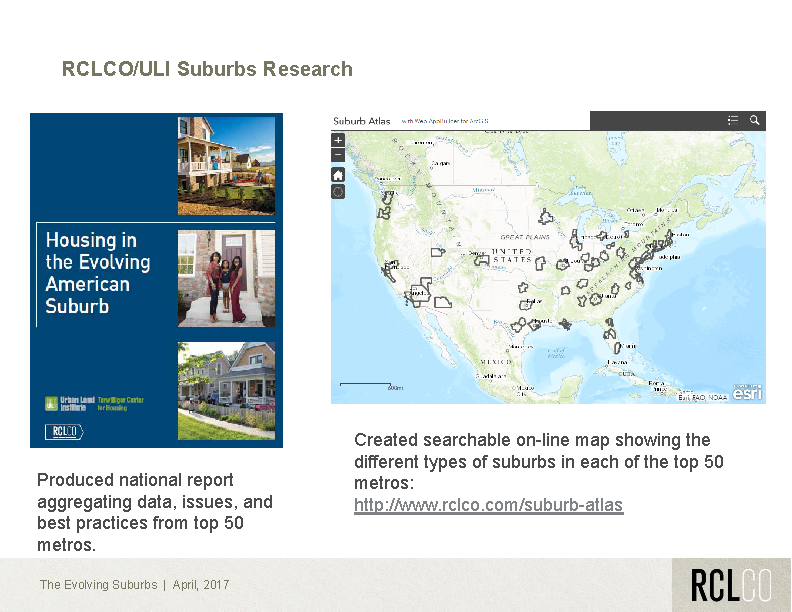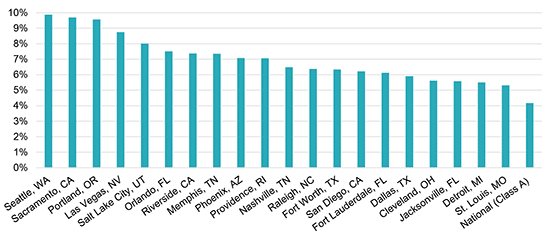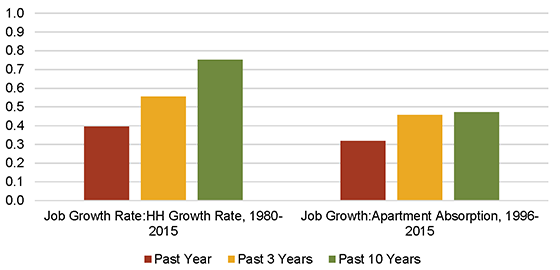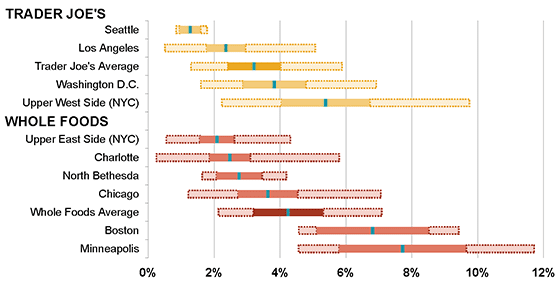Is Smaller Getting Bigger? Visualizing Micro Units Across the United States
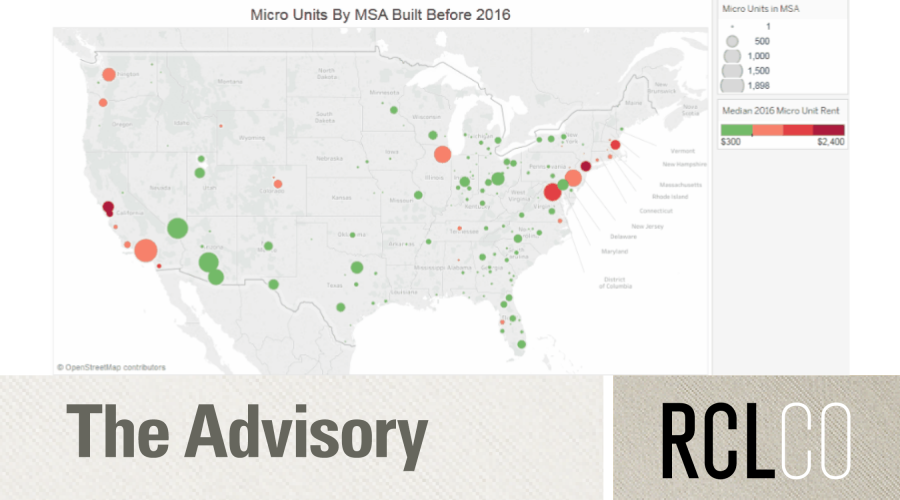
Since collaborating with the Urban Land Institute on The Macro View on Micro Units report in 2014, RCLCO has tracked the growth of “micro” units across the nation.[1] This summer, RCLCO analyzed a robust dataset including over 21,500 micro units among a database of over 7.5 million institutional-quality apartment units nationwide.[2]
Although the real estate industry has recently focused on the perceived shift toward these small micro units, the majority of micro units renting today were built over several decades and are simply small units in conventional apartment buildings.
An interactive map that includes ranking of the 148 metro areas by micro unit per-square-foot premium percentage and micro units as a percentage of total units is available below.
//
RCLCO’s analysis provides a deeper understanding and evaluation of micro units through our application of advanced business intelligence analytics and new data visualization techniques. We are already partnering with clients to solve their business challenges by using these tools and look forward to growing industry knowledge through new and innovative analyses made possible by heavily leveraging technology.
Commonly thought of as an innovative solution for housing affordability in dense areas of big cities, micro units exist across 148 MSAs nationwide, and nearly two-thirds of micro units were built between 1960 and 1990. Although large metropolitan areas such as Los Angeles or Boston generally have more micro units, the metro areas with the highest percentage of micro units are small markets with universities that support institutional rental apartments primarily through students who are willing to live in very small units.
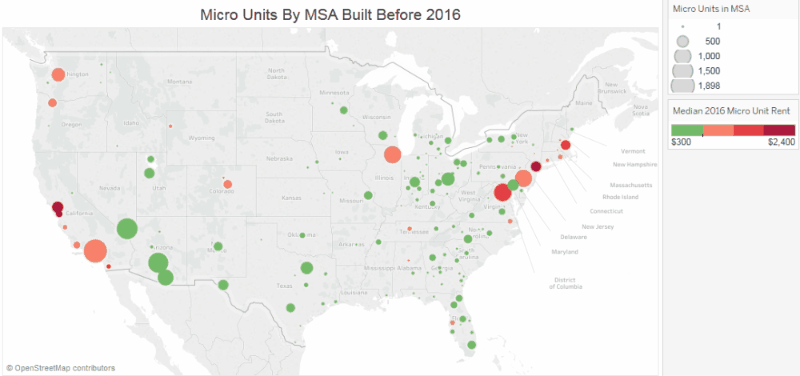
Although micro units are now typically thought of as standalone developments consisting solely of these small units, RCLCO found that fewer than 3% of units 350 square feet or less are in developments dedicated to micro units. Although micro units comprise only 0.3% of the total apartment units included in this survey, they comprise approximately 18% of the units within their respective developments.
Micro units provide renters with less expensive housing on a per-unit basis while generating higher per-square-foot rents. On average micro units rent for 36% less than the average unit of all types in the same market ($830 versus $1,310 nationwide), but property owners are able to nearly double the rent per square foot for these units ($2.74 versus $1.43 per square foot).
This per-square-foot rent premium can vary significantly from market to market, with a premium of over 300% for micro units in Blacksburg, Virginia (home of Virginia Tech University), while renting at a discount in Rochester, Minnesota. Among major markets, the highest per-square-foot premiums for micro units are achieved in San Francisco and Washington, D.C. The steep premiums in these markets indicate that developers may be able to drive up per-square-foot rents by delivering more and smaller studios in conventional apartment communities across the nation. This is consistent with research recently published in an RCLCO Advisory, which found that the average size of a new apartment built since 2010 is 70 square feet smaller than the average size for units built from 2000 to 2009.
References
[1] A micro unit is defined as an apartment of 350 square feet or less.
[2] Per data collected by Axiometrics and RCLCO.
Article and research prepared by Derek Wyatt, Vice President, and Daniel Warwick, Associate.
RCLCO provides real estate economics and market analysis, strategic planning, management consulting, litigation support, fiscal and economic impact analysis, investment analysis, portfolio structuring, and monitoring services to real estate investors, developers, home builders, financial institutions, and public agencies. Our real estate consultants help clients make the best decisions about real estate investment, repositioning, planning, and development.
RCLCO’s advisory groups provide market-driven, analytically based, and financially sound solutions. Interested in learning more about RCLCO’s services? Please visit us at www.rclco.com/expertise.
Disclaimer: Reasonable efforts have been made to ensure that the data contained in this Advisory reflect accurate and timely information, and the data is believed to be reliable and comprehensive. The Advisory is based on estimates, assumptions, and other information developed by RCLCO from its independent research effort and general knowledge of the industry. This Advisory contains opinions that represent our view of reasonable expectations at this particular time, but our opinions are not offered as predictions or assurances that particular events will occur.
Related Articles
Speak to One of Our Real Estate Advisors Today
We take a strategic, data-driven approach to solving your real estate problems.
Contact Us


